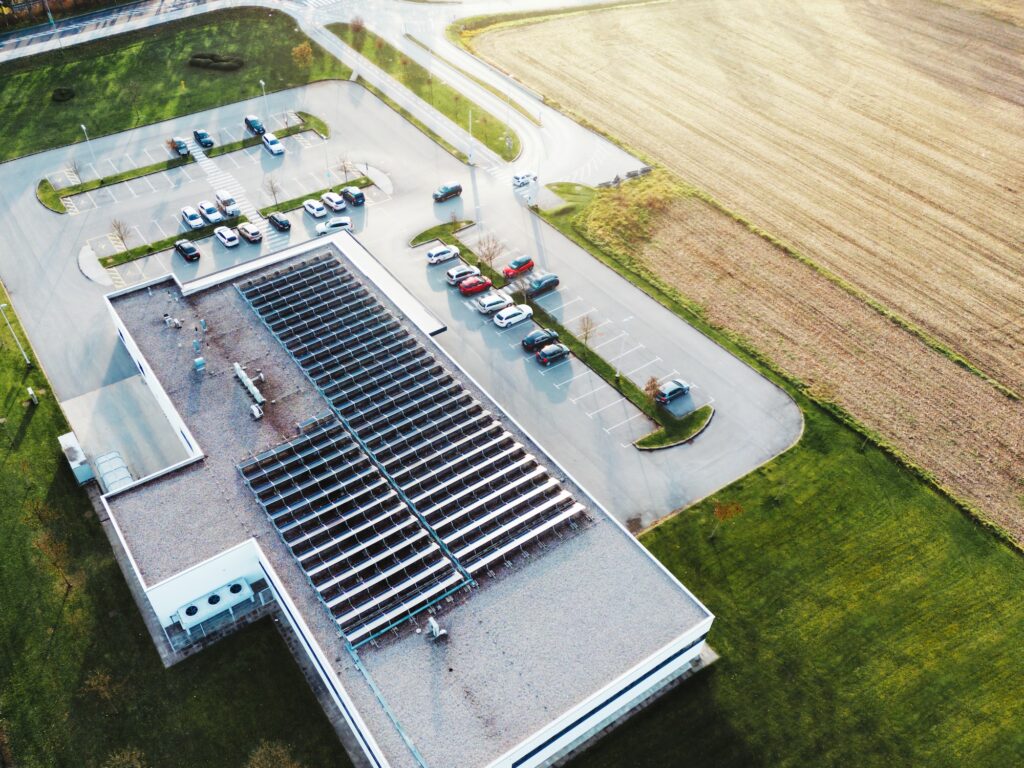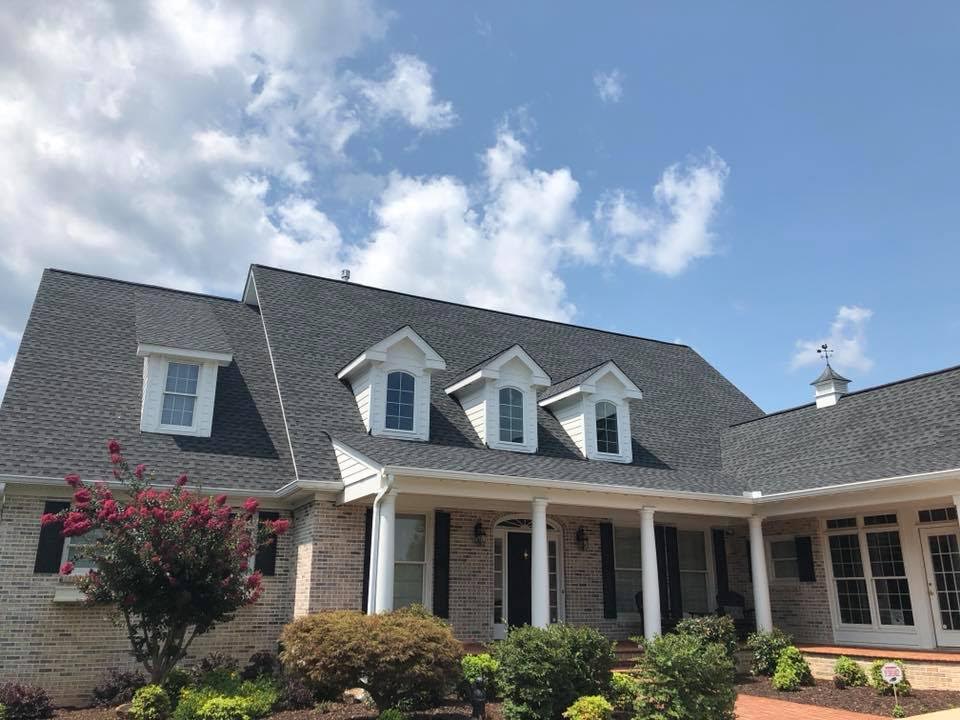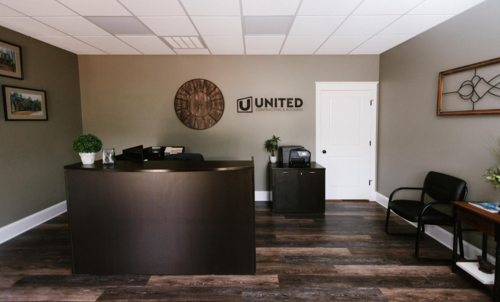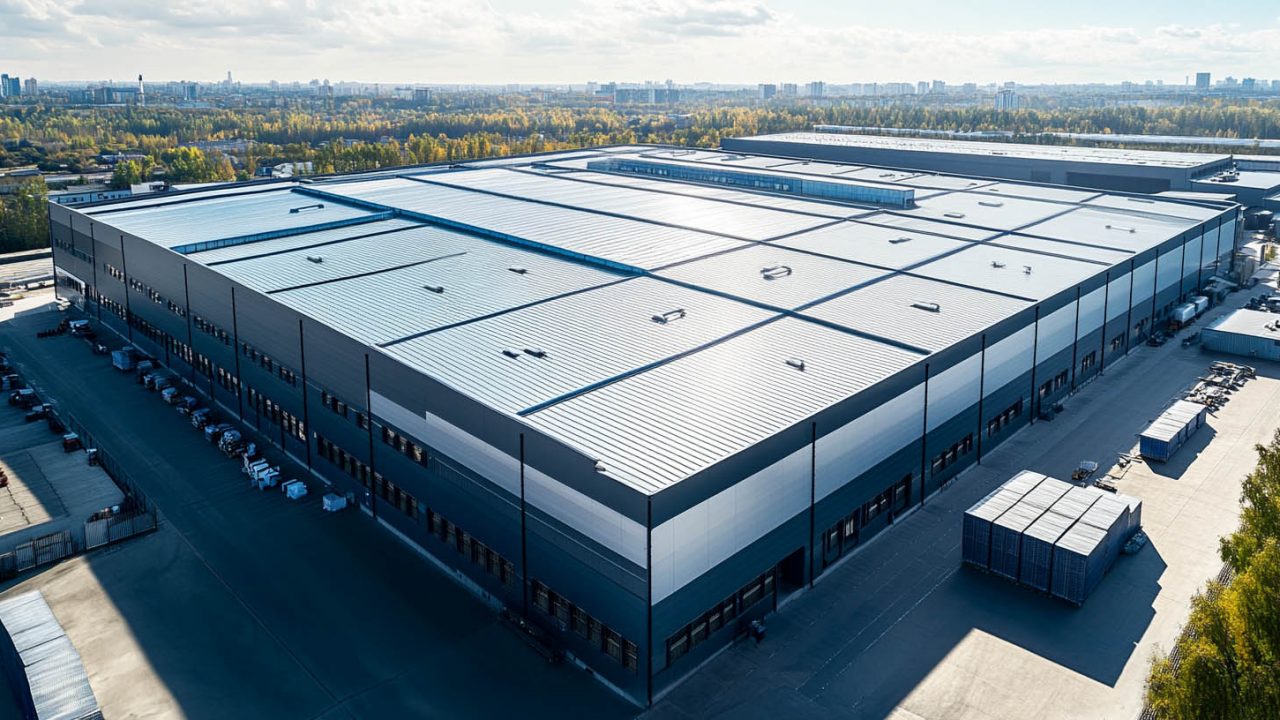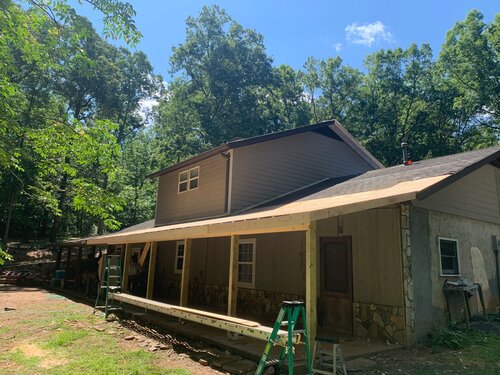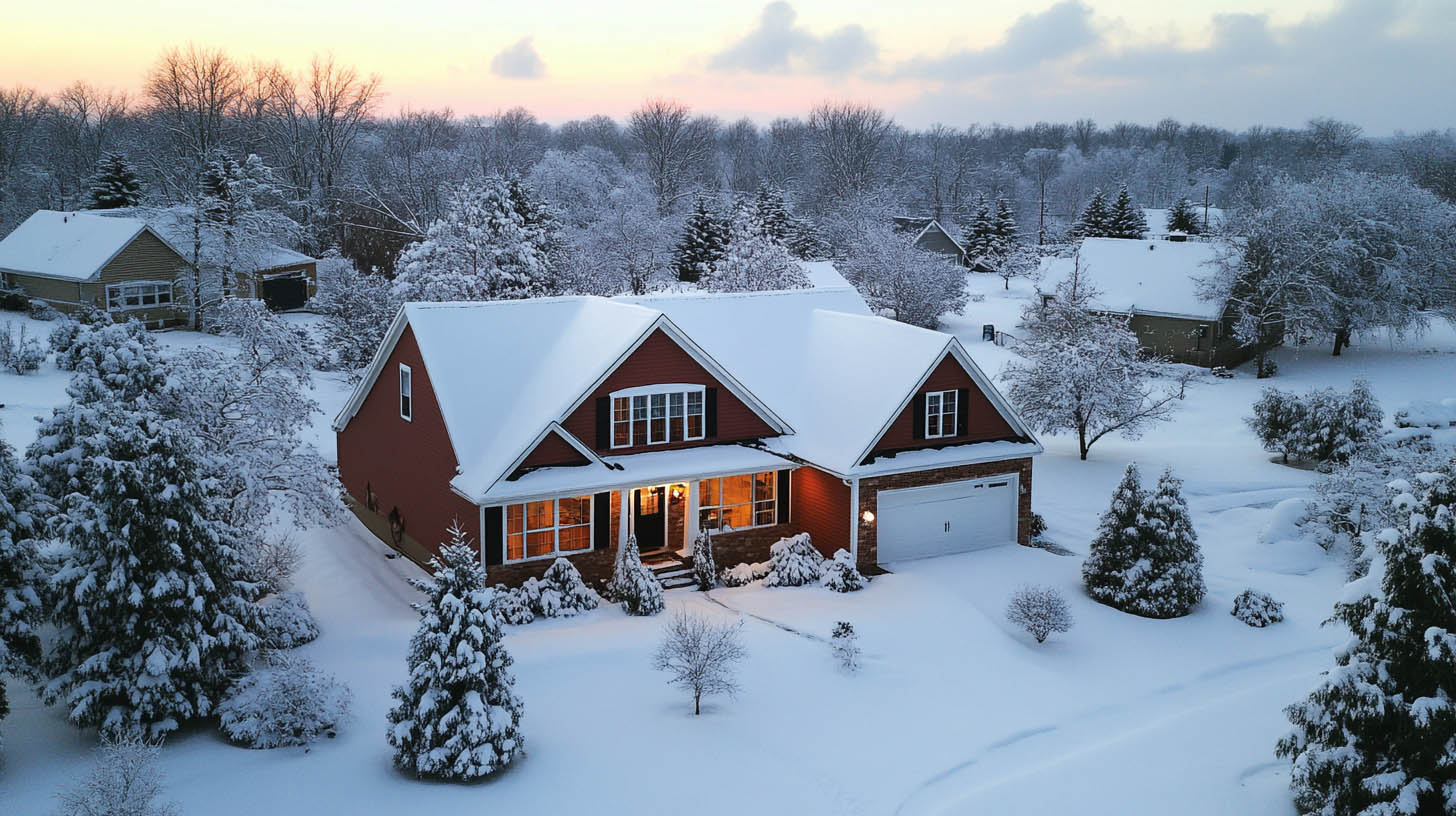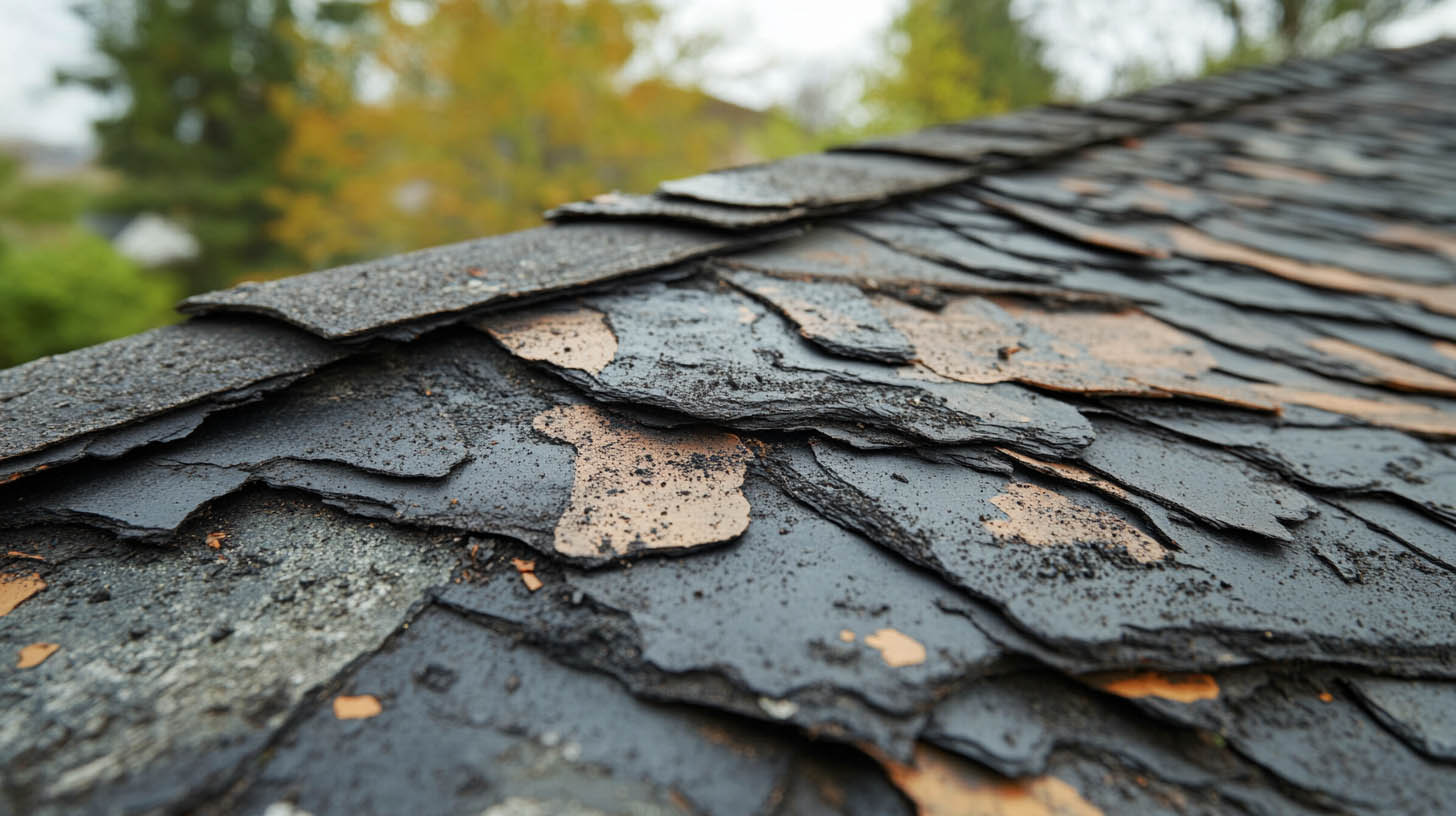When selecting roofing systems for warehouses and industrial facilities, it is crucial to understand the options available. At United Contracting & Roofing LLC, we offer a variety of roofing solutions tailored to withstand extreme weather conditions while optimizing cost efficiency and aesthetic appeal. Below, we explore the best roofing systems suited for industrial applications.
Built-up Roofing (BUR)
Built-up roofing (BUR) is a traditional method that combines layers of asphalt with reinforcing fabrics and is finished with a gravel top layer. This system provides durability and additional traction for those walking on the roof. However, the multiple layers add weight, requiring additional structural support.
Pros:
- Durable and long-lasting
- Provides excellent insulation
- Aesthetically pleasing with a gravel finish
Cons:
- Heavy, requiring reinforced support structures
- Can be more expensive due to additional material and labor costs
Modified Bitumen
Modified bitumen roofing is similar to BUR but incorporates rubber-based materials, enhancing its flexibility and durability. This roofing type is applied in layers, providing excellent waterproofing and resistance to weather extremes.
Pros:
- Flexible and durable
- Reflects sunlight, reducing energy costs
- Suitable for a variety of climates
Cons:
- Requires professional installation with specialized equipment
- Potentially higher maintenance compared to other options
Thermoplastic Polyolefin (TPO)
Thermoplastic Polyolefin (TPO) is a single-ply roofing membrane known for its energy efficiency and resistance to UV rays, chemicals, and bacterial growth. Its reflective properties help reduce cooling costs, making it an ideal choice for industrial buildings.
Pros:
- Highly reflective, enhancing energy efficiency
- Resistant to UV rays and chemical exposure
- Lightweight and easy to install
Cons:
- Seams require proper bonding to prevent leaks
- Regular maintenance needed to ensure seam integrity
Liquid-applied Roofing
Liquid-applied roofing systems use coatings such as acrylics or silicones to form a seamless, waterproof barrier. These coatings can be applied directly over existing roofs, sealing cracks and prolonging roof life.
Pros:
- Seamless application reduces leak potential
- Extends the life of existing roofs
- Excellent waterproofing properties
Cons:
- Higher installation costs due to specialized application
- Requires precise application to ensure durability
Asphalt Shingles
Asphalt shingles are a versatile and cost-effective roofing solution commonly used for residential and commercial buildings. They are easy to install and come in various styles and colors.
Pros:
- Cost-effective and widely available
- Easy to install and replace
- Customizable in size and color
Cons:
- Shorter lifespan compared to other roofing systems
- Susceptible to hail and wind damage
Metal Roofing
Metal roofing offers exceptional durability and longevity, with options such as zinc, aluminum, and steel each providing unique benefits.
Zinc:
- Ideal for coastal and industrial areas
- Resistant to corrosion and high winds
- High initial cost, often supplemented with other metals
Aluminum:
- Lightweight and easy to install
- Durable and corrosion-resistant
- Higher cost but adds significant value
Steel:
- Highly durable and strong
- Requires coatings to prevent rust
- Heavier than other metals, potentially increasing installation time
Conclusion
Choosing the right roofing system for warehouses and industrial buildings involves balancing cost, durability, and maintenance requirements. At United Contracting & Roofing LLC, we pride ourselves on our commitment to quality, experience, and service, ensuring each project meets the highest standards. For a comprehensive overview of the Most Common Materials Used in Commercial Roofing, click here.

